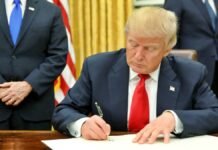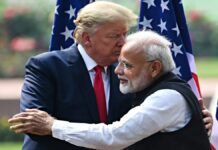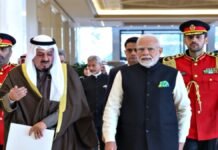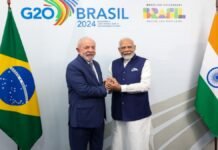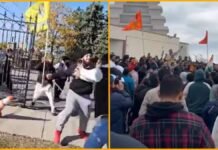
Key Points
- PM Narendra Modi chaired a high-level security meeting with Defence Minister Rajnath Singh, NSA Ajit Doval, and the chiefs of all three armed forces amid heightened tensions with Pakistan.
- Modi granted the Indian armed forces “complete operational freedom” to decide the mode, timing, and targets of India’s response to the Pahalgam terror attack.
- The meeting follows the deadliest civilian-targeted attack in Kashmir since 26/11, with 26 people killed in Pahalgam on April 22.
- India’s leadership vows to deliver a “crushing blow to terrorism” and pursue perpetrators and their sponsors “to the ends of the earth.”
- The government’s decisive stance has raised expectations of a strong counteraction, echoing previous surgical strikes and the Balakot airstrike.
New Delhi: In a dramatic escalation following the Pahalgam terror attack, Prime Minister Narendra Modi convened a critical security meeting at his official residence on Tuesday evening. Present were Defence Minister Rajnath Singh, Foreign Minister S Jaishankar, National Security Advisor Ajit Doval, Chief of Defence Staff General Anil Chauhan, and the chiefs of the Army, Navy, and Air Force. The meeting, which lasted over an hour, comes against the backdrop of rising tensions with Pakistan and mounting demands for a robust response to the massacre of 26 civilians, mostly tourists, in Kashmir.
Unprecedented Operational Freedom for Armed Forces
According to government sources, PM Modi delivered a clear and forceful message: the armed forces have “complete operational freedom” to determine the mode, targets, and timing of India’s retaliation for the Pahalgam attack. Modi affirmed that it is India’s “national resolve to deal a crushing blow to terrorism” and expressed full faith in the professionalism and capabilities of the military.
“They have complete operational freedom to decide on the mode, targets, and timing of our response,” Modi stated, underscoring the government’s confidence in military leadership.
Context: A Nation Demands Justice
The Pahalgam attack on April 22 has been described as the deadliest on civilians in the region since the 2008 Mumbai attacks. The brutality of the massacre has triggered nationwide outrage and calls for decisive action against both the terrorists and their alleged sponsors in Pakistan. In response, India has already taken several diplomatic and strategic measures, including suspending the Indus Waters Treaty and expelling Pakistani officials.
History of Decisive Action
The Modi government’s muscular approach to national security is well established, with previous retaliatory strikes including the 2016 surgical strikes after the Uri attack and the 2019 Balakot airstrike following Pulwama. The current directive signals the possibility of another major military response, with the armed forces now empowered to act without bureaucratic constraints.
Ongoing Security Deliberations
Parallel to the Prime Minister’s meeting, Union Home Secretary Govind Mohan chaired a high-level session with heads of key paramilitary and security agencies to review internal security and border management. Series of meetings are underway across ministries to coordinate India’s next steps in the wake of the Pahalgam attack.
India stands at a critical juncture, with its leadership signaling a no-holds-barred approach to counterterrorism. The nation and the world now await the next move as the armed forces prepare to respond on their own terms.






